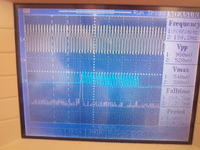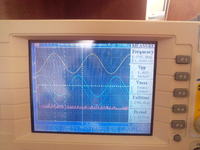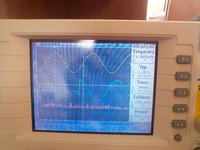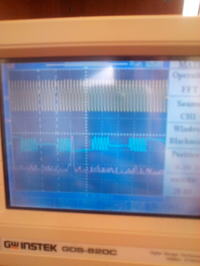Marcin Sierżan
Newbie level 3

Hi, i try to do a THD calculator using tms320c6713 in code composer studio. input - sin generator, output - scope. I've problem with otput signalamplitude. Can somebody look at the code? Images under post.
Code:




Code:
Code C - [expand]




Last edited by a moderator:
